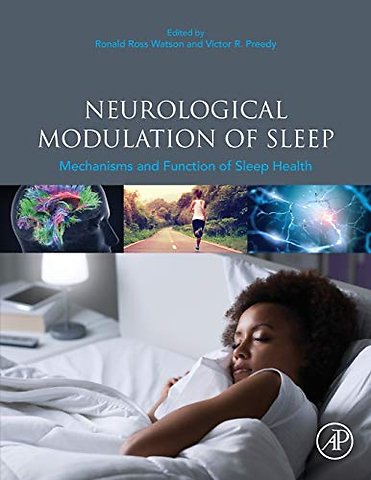<p>1. Diet, Age, and Sleep in Invertebrate Model Organisms<br>2. The Role of Sleep in the Control of Feeding Behavior<br>3. Diagnosis and Treatment of Shift Work Disorder<br>4. Normal Sleep and Its Neurophysiological Regulation<br>5. The 1-2-3s of Pediatric Sleep Disorders<br>6. Sleep Disturbances, Body Mass Index, and Eating Behavior<br>7. Neurocognitive Functions in Patients with Obstructive Sleep Apnea Hypopnea Syndrome<br>8. Adipose Tissue in Sleep Apnea: Effects of Hypoxia and Inflammation<br>9. Exercise, Diet, and Obese Adolescents: Association with Sleep Deprivation<br>10. Sleep and Hypoxemia in Adults<br>11. Obesity Hypoventilation Syndrome<br>12. Sleep, Sexual Function, and Testosterone<br>13. The Malignant Obesity Hypoventilation Syndrome<br>14. Obesity, Inflammation, and Obstructive Sleep Apnea: Exercise as Therapy<br>15. Obstructive Sleep Apnea in Normal-Weight and Obese Patients<br>16. Obstructive Sleep Apnea and the Metabolic Syndrome: Clinical Profiles and Relationships<br>17. Circadian Misalignment and Metabolic Consequences: Shiftwork and Altered Meal Times<br>18. Role of Sympathetic Nervous System in the Metabolic Syndrome and Sleep Apnea<br>19. Obstructive Sleep Apnea and the Metabolic Syndrome: Pathophysiological and Clinical Evidence<br>20. Sleep Deprivation and Metabolic Syndrome<br>21. Excessive Daytime Sleepiness: Age, Sleep, Mood, and Metabolic Modulation<br>22. The Metabolic Role of Saturated and Monounsaturated Dietary Fatty Acids: Their Contribution to Obesity, Brain Activity, and Sleep Behavior<br>23. Obstructive Sleep Apnea and Diabetic Microvascular Complications<br>24. Obstructive Sleep Apnea Increases Hemoglobin A1c Levels: Mechanisms and Consequences<br>25. Restless Legs Syndrome (Willis–Ekbom Disease) and Gastrointestinal Diseases<br>26. Relationship between Circadian Rhythms, Feeding, and Obesity<br>27. The Effects of Nutrition on Sleep and Sleep Complaints among Elderly Persons<br>28. Fragmented Sleep and Memory Consolidation<br>29. Sleepiness at the Wheel and Countermeasures: Effects of Caffeine, Napping, and Blue Light<br>30. Sleep Deprivation and Behavioral Risk-Taking<br>31. Relation between Magnesium Deficiency and Sleep Disorders and Associated Pathological Changes<br>32. Physical Activity and Sedentary Time in Sleep Apnea and Obesity<br>33. Oxidative Stress in Sleep Apnea<br>34. Sleep in Fetal Alcohol Spectrum Disorders<br>35. Adenosine and Glutamate in Neuroglial Interaction: Implications for Sleep Disorders and Alcoholism<br>36. Sleep Quality and Risk of Alcohol Misuse<br>37. Sleep and Addictions: Linking Sleep Regulation with the Genesis of Addictive Behavior<br>38. Alcohol and Sleep-Disordered Breathing<br>39. Patterns of Alcohol Consumption and Sleep in Shiftworkers<br>40. The Impact of Bariatric Surgery on Obstructive Sleep Apnea<br>41. Preoperative, Perioperative, and Postoperative Considerations in the Bariatric Surgery Patient with Sleep Apnea</p>
